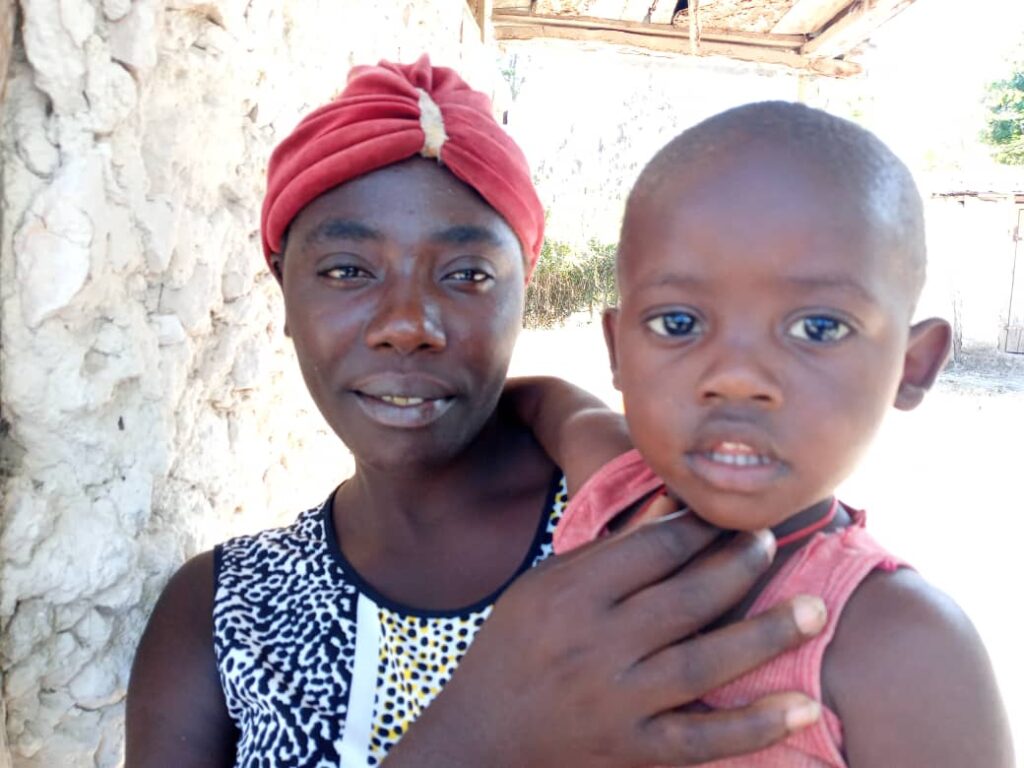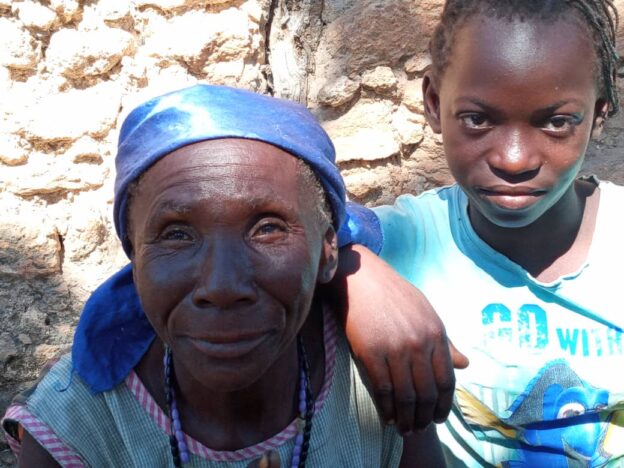Dieumène Thélusma is a grandmother with five dependent grandchildren. They live in Ti Sitwon, a hillside community above the road leading into Dezam from Mibalè in the east and Ponsonde in the west. Her grandchildren have been with her ever since their father, one of Dieumène’s two children, passed away. Though they sometimes go to see their mother, they really depend on Dieumène. They used to depend on her husband, their grandfather, as well, but he has been sick. He now depends on Dieumène as much as they do.
One of their granddaughters, Louinèse, has her own two small children. She was away giving birth when the CLM went through the selection process in the neighborhood, so the team missed her, though she herself easily qualifies for the program. Fortunately for her, however, one of the families who was initially thought to qualify turned out to have been lying to the team. They were removed from the list, and that left a spot open, which was immediately offered to Louinèse. She is not excited to get to started.
Dieumène has been really struggling, especially since her husband became unable to help out. She’s been cutting up the trees on her husband’s land, turning them into charcoal
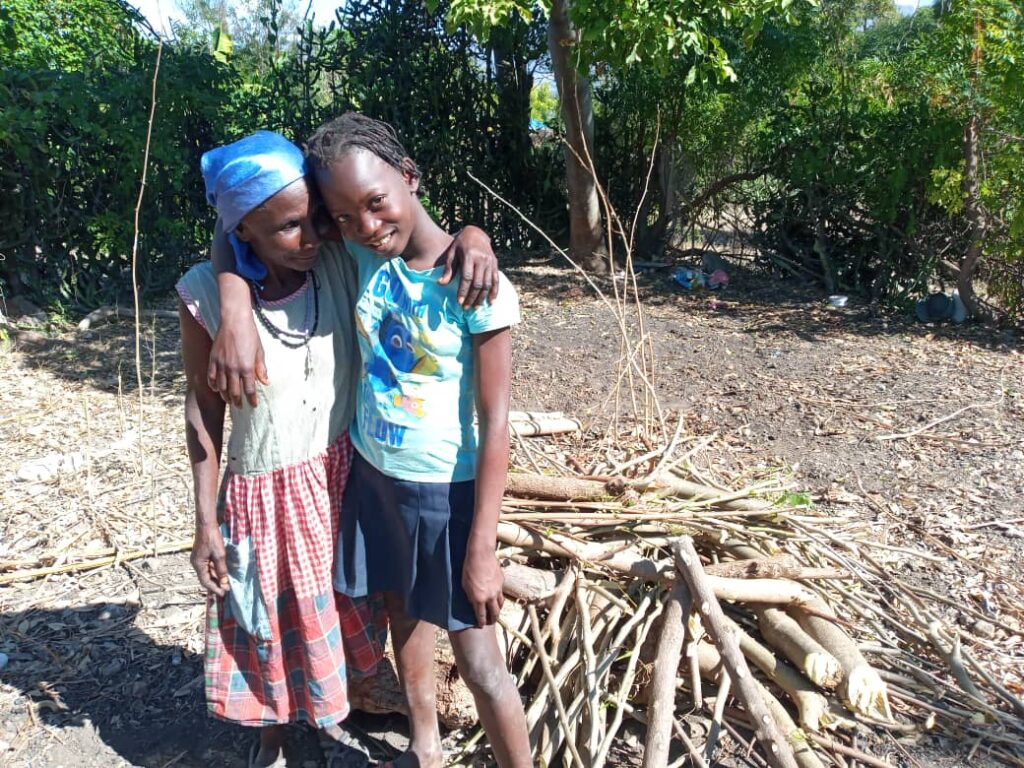
She’s unhappy because her house is falling apart. “I have no one to help me.”
She and the children don’t even always have enough to eat. “If I have nothing to give them, they go to bed without. They just lie down like that to sleep.”
She’s asked the program to give her goats and small commerce, and she has ideas about each. About small commerce, Dieumène says that, “As long as I have a business in my hands, my kids won’t go hungry.” Though she doesn’t yet know what kind of business would suit her best, she is sure that she can begin to make money if she is able to start going to the downtown market with some cash in her hands.
About the goats, she says “I’ll keep them tied where they find plenty to eat, I’ll give them water, and someday I’ll sell some to buy a cow.”
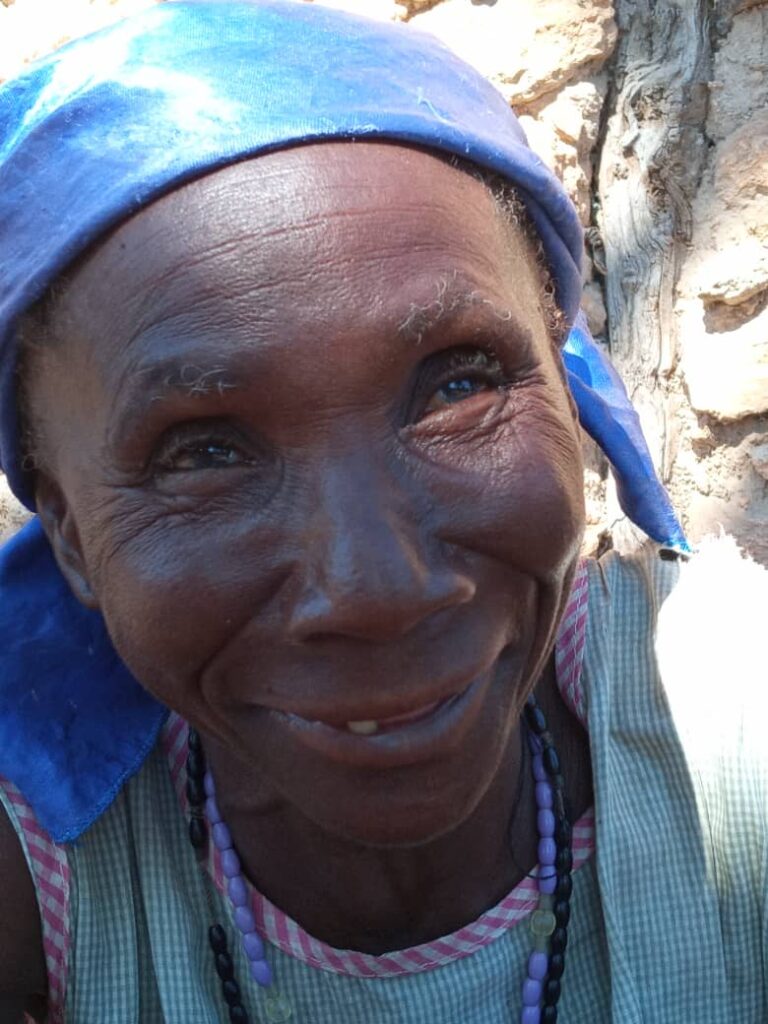
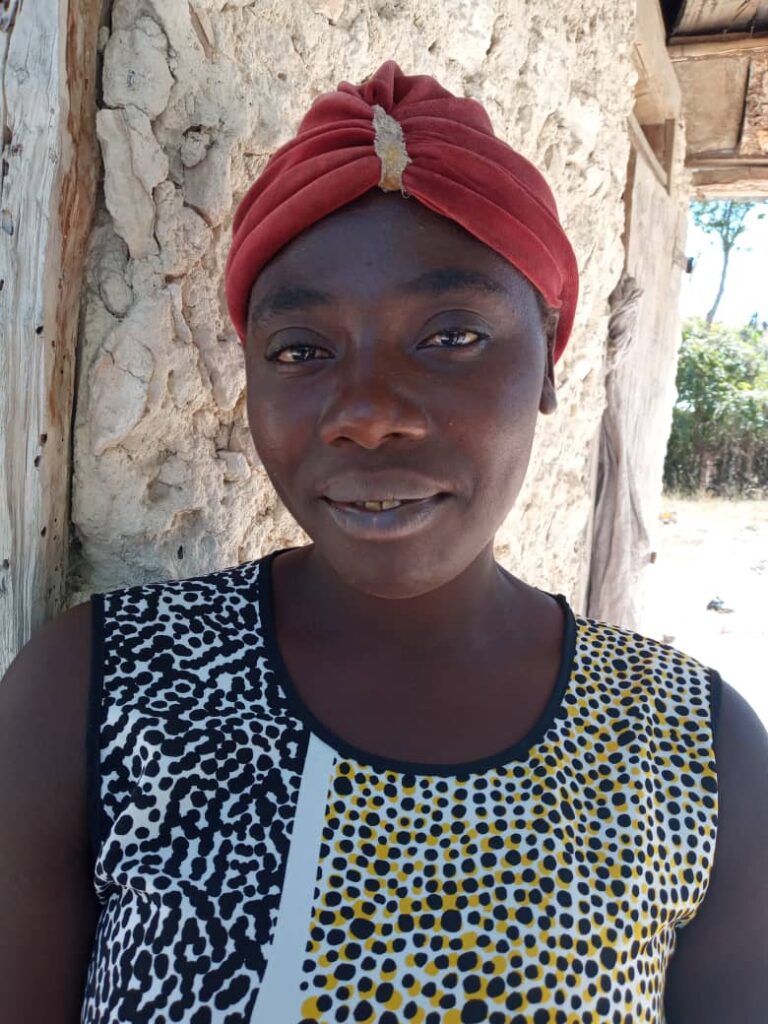
Marimène Jean lives closer to the road, in a home with her husband and their five sons. Her husband helps her support the kids by farming. The couple doesn’t have their own land, so they farm as sharecroppers.
She used to earn income with small commerce. She’d sell laundry detergent and bleach by the cupful, but her business was built upon borrowed money. She never had capital of her own. She was always owing someone. Her last pregnancy made it impossible for her to sell at all, and her merchandise ran out before she was even able to pay everything she owed. She still has some debt, and she has been hoping for a way to get started again ever since.
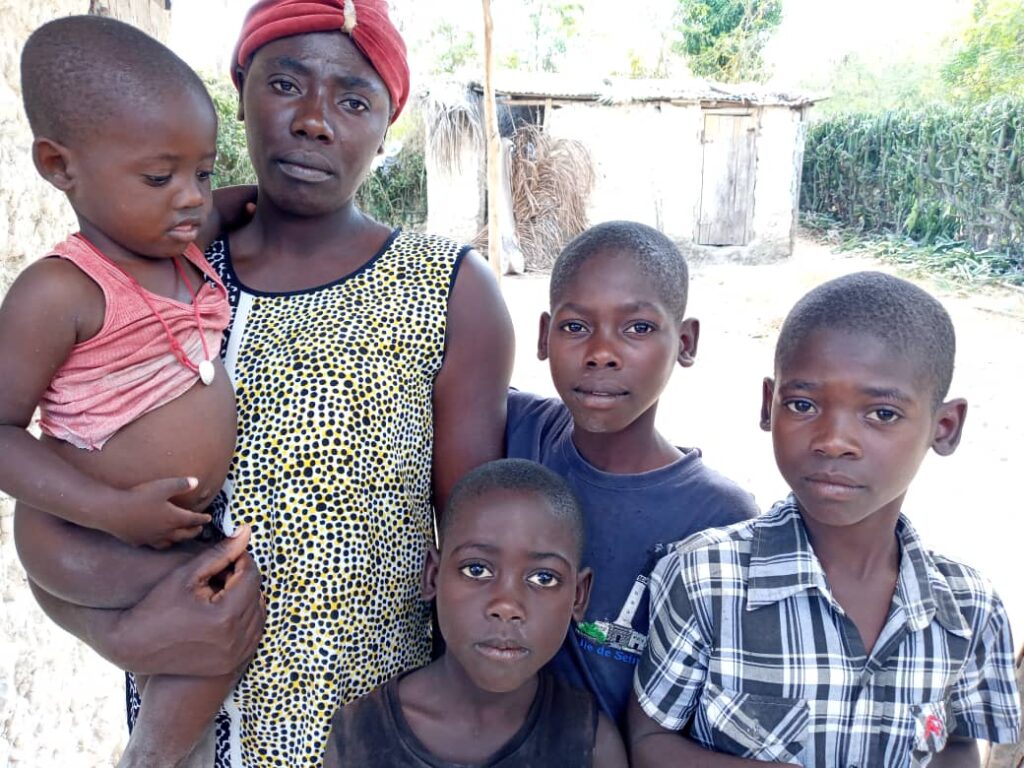
The couple’s older children are all in school now, though only one was in school before Marimène joined CLM. Her fourth boy has a godmother who sends him to school. Marimène began sending the others just this year. “People were telling me that now that I’m in a program, I have to send my kids to school.” She sends them to the local public school. It’s inexpensive, but she’s not sure where the little money it cost will come from.
Unlike Dieumène, Marimène doesn’t even have a home to call her own. She’s been living in a house that belongs to one of her husband’s relatives. Things are looking up, however. When a local leader heard that she and her husband would have the chance to build their own home, she agreed to sell them an inexpensive plot of land to build on on credit. They can pay her as they have it. Marimène is thrilled. She and her husband have already had the pit for their latrine dug on the new plot of land.
She’s asked the program for goats, and she’s interested in poultry for her other asset. But she doesn’t want chicken as long as she and her family are where they are right now. They are too easily stolen. She’d rather have turkeys, which are easy enough for her case manager to provide.
Her plan for the goats is simple. She wants to take care of them until she has enough to buy a small cow, or, even better, a small plot of farm land. Someday she hopes that she and her husband will be able to stop sharecropping and farm their own land instead.
